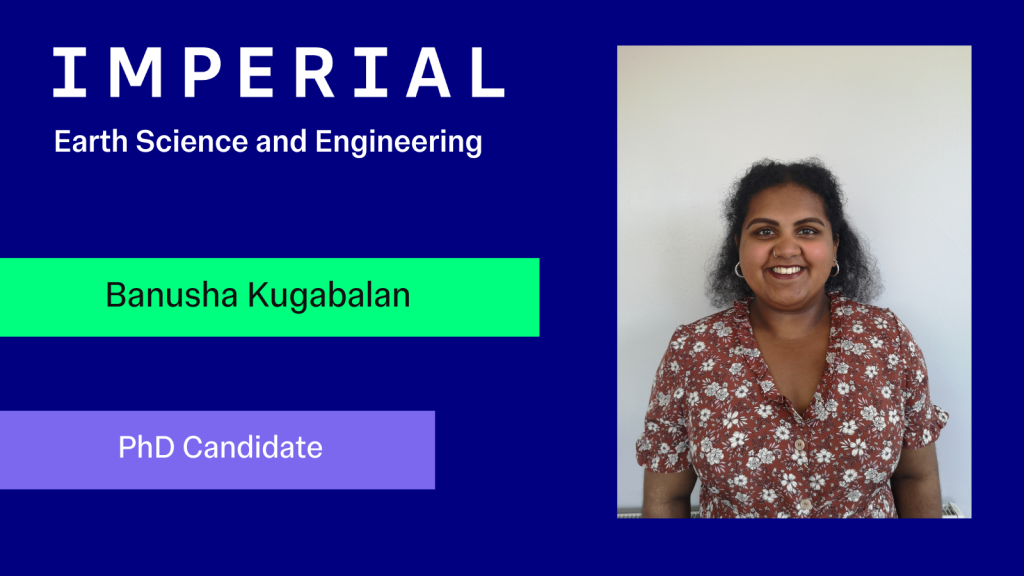
Banusha Kugabalan is a PhD candidate at the Department of Earth Science and Engineering (ESE) at Imperial. Her work revolves around stress signals in rocks, that occur after ‘shock events’ (like meteorite impacts and earthquakes) causing the magnetic minerals in rocks to align with the magnetic field and record the stress field.
Researchers like Banusha can study magnetic signatures to learn about past impacts and earthquakes on Earth and other planets.
Describe your PhD project in a tweet:
My PhD focuses on stress and shock effects in rock magnetism.
How do you see your research making an impact within and beyond academia?
From collisions and impacts during the formation of our solar system to tectonic stress and impact cratering on planets, magnetic grains can retain stress and shock events. Retrieving these signals can help us understand the formation and evolution of the Solar System and Planetary bodies.
What sparked your interest in your research area? And what motivated you to pursue your PhD at ESE?
My background is in Astrophysics. I always wanted to expand and apply physics to a different field of research. I have learnt and applied physics to understand the stars and the universe but never our home planet or all the rocky bodies surrounding us. So, I chose to do a PhD in Geophysics.
How do you maintain a healthy work-life balance?
To maintain a healthy work-life balance I regularly go boxing and go to the gym. I also try and go for a swim at least once a week. I find exercise is a great way to de-stress and focus on something completely different. At the weekends I make sure to do at least one fun activity and socialise with my friends.
How do you navigate challenges and setbacks in your PhD journey?
Any challenges and setbacks in your PhD journey can be easily solved by speaking to people such as your supervisor, colleagues, and friends. You will always find a solution and a new approach to take. Research has its ups and downs but its important to stay curious and motivated.
What advice would you give to prospective PhD students considering a similar research path?
Be curious and don’t be afraid of risks or failure.
Where do you see yourself after completing your PhD?
I really enjoy research so hopefully continuing research in something interesting.
What do you do to wind down?
Watch reality TV or listen to music/podcasts and I love to cook.
What are colleagues least likely to know about you?
Nobody calls me Banusha outside of work.